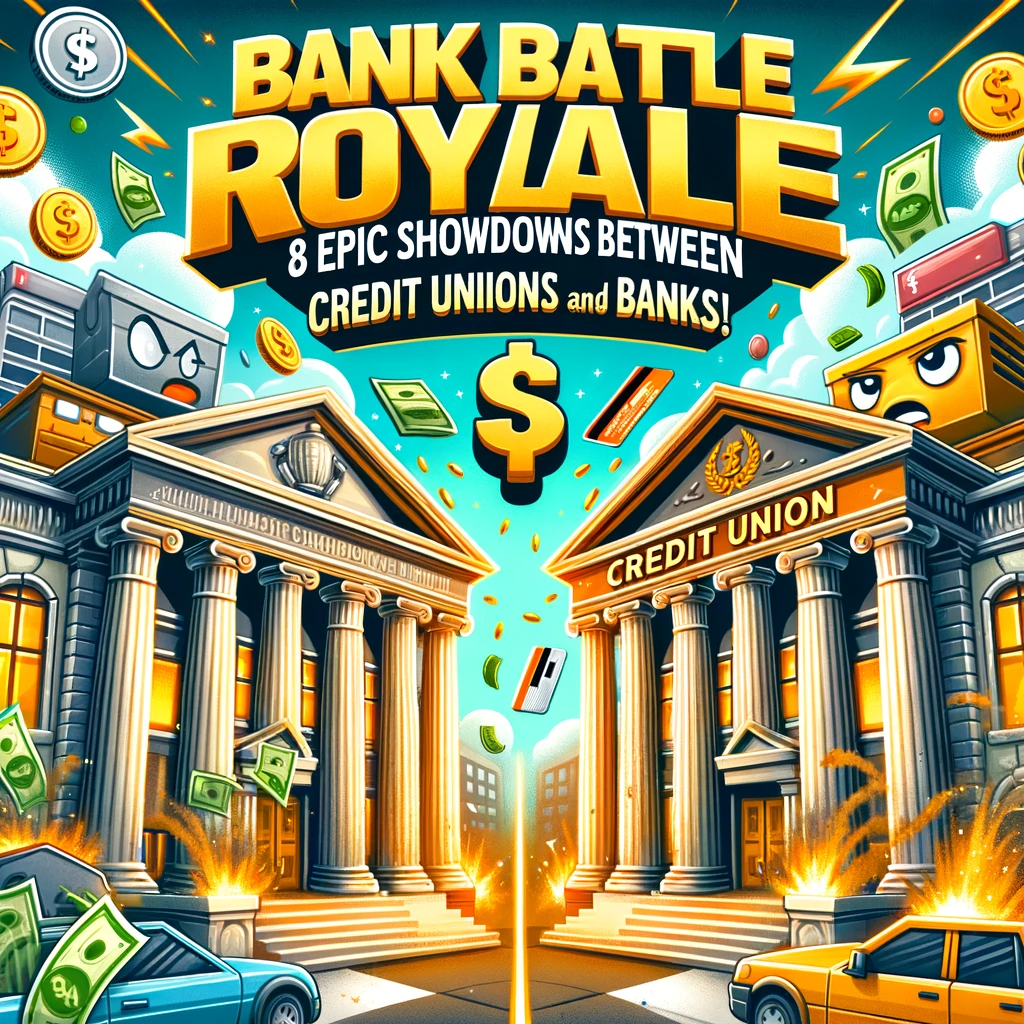
When it comes to managing your finances, the choice between credit unions and banks is like an epic showdown in a financial arena. Each has its champions and its challengers, its strengths, and its strategies. Let’s dive into 8 rounds of this battle to help you decide which contender might be the best fit for your financial needs.
Round 1: Personal Touch
Credit Unions: Known for their community focus, credit unions often provide a more personalized banking experience. With a member-centric approach, you’re not just a customer; you’re a part-owner.
Banks: Larger banks might not match the personalized service of credit unions, but they offer consistency and a wide range of services. The experience might be less personal, but it’s efficiently streamlined for convenience.
Round 2: Fees and Rates
Credit Unions: Typically offer lower fees and better rates on savings accounts and loans, thanks to their not-for-profit status. They aim to return profits to their members, which can mean more money in your pocket.
Banks: Might have higher fees and interest rates on loans but also offer more rewards and incentives on their products. Banks often have the scale to provide more competitive rates on certain products.
Round 3: Accessibility
Credit Unions: May have fewer branches and ATMs, which can be a downside for those who travel frequently or prefer in-person banking.
Banks: Generally boast a vast network of branches and ATMs nationwide or even globally, making access to your money convenient almost anywhere.
Round 4: Product Variety
Credit Unions: The range of financial products can be more limited. However, the products offered are tailored to meet the needs of their member base.
Banks: Offer a broad spectrum of financial products, from basic checking accounts to complex investment services and everything in between.
Round 5: Online and Mobile Banking
Credit Unions: Have made significant strides in digital banking, but their tech offerings might not be as robust as those of larger banks.
Banks: Often lead the way in technology, offering cutting-edge online and mobile banking experiences, with features like mobile check deposit, online bill pay, and real-time alerts.
Round 6: Loan Approval Process
Credit Unions: Known for a more flexible loan approval process, which can be beneficial for individuals with less-than-perfect credit.
Banks: Typically have stricter loan criteria, but for those who qualify, the process can be swift and efficient.
Round 7: Financial Education and Community Involvement
Credit Unions: Excel in providing financial education to their members and are heavily involved in community initiatives, which can be a significant benefit for those looking to improve their financial literacy.
Banks: While some banks offer financial education resources, their community involvement might not be as pronounced or focused as that of credit unions.
Round 8: Safety and Security
Credit Unions: Deposits are insured up to $250,000 by the National Credit Union Administration (NCUA), a federal agency equivalent to the FDIC for banks.
Banks: Also offer deposit insurance up to $250,000 per depositor, per insured bank, for each account ownership category by the Federal Deposit Insurance Corporation (FDIC).
The Verdict
The battle between credit unions and banks is a close one, with each round showcasing the unique advantages of both contenders. The best choice depends on what you value most in your financial institution – whether it’s the personalized service and community feel of credit unions or the wide range of services and accessibility offered by banks.
Ultimately, it’s not about which side wins but about which institution aligns best with your personal financial goals and lifestyle. Whichever you choose, make sure it’s the champion for your financial well-being.



